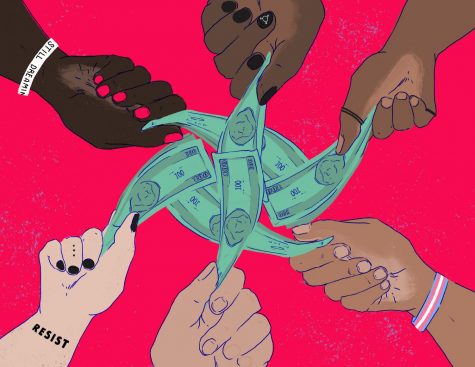House bill could help transgender and undocumented students
May 31, 2019

Some transgender and undocumented students have difficulty acquiring government funding to pay for higher education, but an Illinois House bill could make it easier.
The Retention of Illinois Students and Equity Act, or House Bill 2691, is at Gov. J.B. Pritzker’s desk waiting for his signature.
Transgender students may be unable to apply for federal student aid for a variety of reasons, one being an inability to register for the draft. Undocumented students, as well, may not able to apply for any federal assistance due to social security issues.
During Fall 2018, 5% of undergraduate students and 19% of graduate students were identified as “Non-Resident Alien,” according to Columbia’s Institutional Effectiveness Fact Book, which did not list the number of transgender students enrolled.
“One of the core values of Columbia is the idea [of inclusion],” said President and CEO Kwang-Wu Kim in a May 21 interview. “Right now we’re living in a time when there are a lot of very arbitrary decisions being made at the national level. We can’t combat it, but we can do the things that we can do to … make up some of the gap.”
The Retention of Illinois Students and Equity Act would provide state funding—such as the Monetary Awards Program, otherwise known as MAP funding—to students who did not previously receive federal financial aid. The bill would ensure all students could have “meaningful and equitable access to higher education opportunities,” according to the bill.
Co-sponsor of the bill and State Rep. Will Guzzardi (D-Chicago) hopes the bill could help students get better paying jobs, support their families and develop communities.
“We have as a core value of our society the notion that advancing oneself through education is a pathway to success,” Guzzardi said. “That pathway shouldn’t be closed off to anyone regardless of their income or immigration status or any other fact of their life.”
State Sen. Jim Oberweis (R-Sugar Grove), voted against the bill during the third reading. Oberweis said there is not enough MAP grant funding to go around.
“The math is simple,” he said, referring to potential additional recipients of MAP funding. “Some … citizens will get less [funding] or none.”
The bill provides aid to transgender citizens, which Oberweis supports, but he was concerned scholarships could go to non-citizens before it went to residents.
“Our first obligation should be supporting our citizens,” he said.
Guzzardi acknowledged there is not much MAP grant funding.
During the budget impasse under former Gov. Bruce Rauner, MAP grant funding was put on hold. It was not until July 2017 MAP when grant funding was added back into the budget, as reported by The Chronicle that same month.
Guzzardi said the lack of MAP grant funding could prevent students from attending college, but he does not think that should prevent the bill from passing.
“I don’t think any population of students should be excluded from eligibility for MAP,” he said. “The fact that there aren’t enough resources in MAP doesn’t mean we should be shutting out undocumented students. What you are saying is that some students are worth an opportunity … and some students aren’t, and I just don’t believe that.”
According to a March 2017 report from the Institute for Higher Education Policy, 95% of colleges cost too much for low-income students to afford.
“The college affordability problem is fundamentally one of inequity,” the report said. “The higher education community—federal, state and institutional policymakers—can adopt policies that tackle inequity head-on to ensure that qualified low– and moderate–income students have the same opportunities as students with higher family incomes.”
Lynne Baker, managing director of communications for the Illinois Student Assistance Commission, said institutions can help students with scholarship money if they cannot get federal or state funding, but did acknowledge without aid it can be difficult to attend college.
Students do have other options such as community college to make college more affordable, Baker said.







